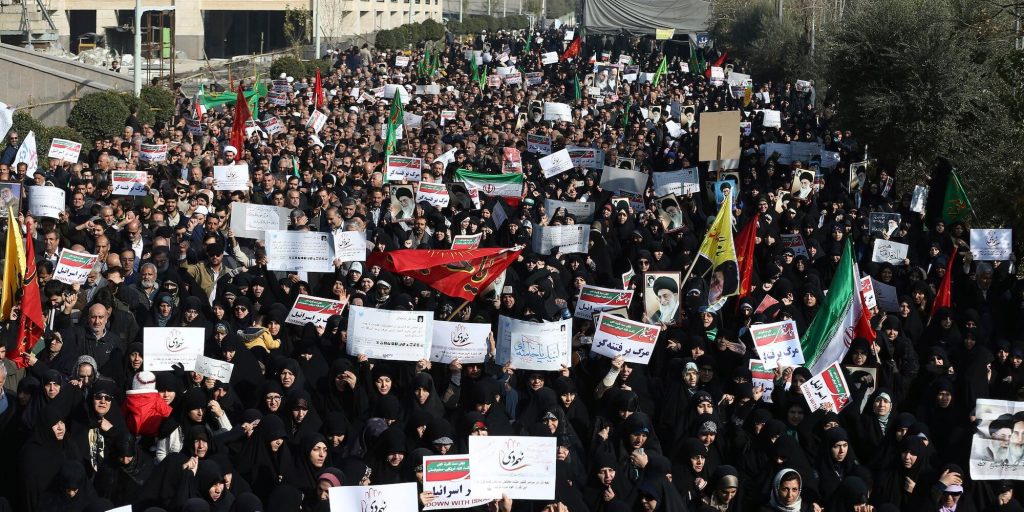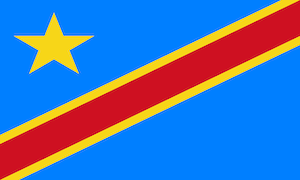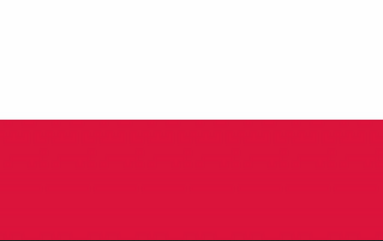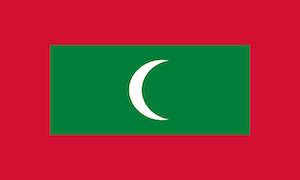January 5, 2018

Photo: Iranian protesters at a rally in Tehran, Iran, on Saturday. Iranian hard-liners rallied Saturday to support the country’s supreme leader and clerically overseen government as spontaneous protests sparked by anger over the country’s ailing economy roiled major cities in the Islamic Republic – Credit: AP Photo/Ebrahim Noroozi

The last days of the year ended very violently in DRC. UN Peacekeepers have said that security forces killed at least seven people on the last day of 2017, during protests against President Joseph Kabila’s refusal to step down from office. Catholic churches and activists called for peaceful demonstrations after Sunday mass, to which police responded with teargas and bullets, according to the Guardian. UN Secretary-General Guterres expresses concern about the violent dispersion of protests by national security forces in Kinshasa and a number of other cities.
In a reaction to these events, this week Catholic Church leader Cardinal Laurent Monsengwo, the Archbishop of Kinshasa, has condemned the state’s response to protests over the weekend as “barbarism”. In these protests, a dozen people were killed, according to recent estimates from protest-organizers. The protesters were mobilized by a Catholic Church committee in DRC, and supported by opposition groups, civil society organizations, and other activist-groups. According to Reuters, the Cardinal stated that the deadly crackdown on protesters who marched all over the country on Sunday has “created a sociopolitical malaise that cuts across our dear and beautiful country.”
The Guardian
Reuters

Late last week, Globe and Mail reporter Nathan Vanderklippe wrote on the changing media-field in Cambodia. As one of the most open media environments in Southeast Asia has slowly turned into a repressive state, “critical voices have been receding in a co-ordinated CPP effort to repulse Western influence and weaken political adversaries.” Now, while several reporters have been jailed, human-rights organizations are closing down and foreign-funded news services are being pulled from the airwaves, Cambodian Prime Minister Hun Sen has sought support from China. The Asian superpower has become a critical source of investment capital and is now also beginning to establish a presence in Cambodia’s media industry. Read Vanderklippe’s full piece to understand what this might imply for the country’s media landscape.
On Monday, Cambodia’s detained opposition leader Kem Sokha called for free and fair elections in the Southeast Asian country in a New Year’s message. A two page letter containing his writings was read out by his daughter Kem Monovithya and posted on Facebook. Sokha stated that Cambodia faces losing aid and its export markets abroad as well as condemnation by the international community after the CNRP’s dissolution, according to Reuters. After the dissolvent of main opposition party last month, the European Union and the United States already withdrew their support of the 2018 election. Soon after their decision, China promised to provide the necessary equipment for Cambodia’s 2018 vote.
The Globe and Mail
Reuters

On the last day of 2017, the New York Times publishes a long-read story about the mental health impact the ongoing Rohingya-crisis is feared to have on its children. According to Save the Children, close to 60 percent of the more than 655,000 Rohingya who have fled to Bangladesh since the Myanmar military began its crackdown in late August 2017, are minors. As the prospects for these young refugees are grim, experts claim the situation to be “the perfect breeding ground for a massive mental health crisis for children.” Because they are living in an almost permanent state of “fight or flight” arousal, this “hyper-stressed” condition can change the architecture of the children’s brains, according to the report.
On Thursday, Myanmar’s Independence Day, the country’s civilian president Htin Kyaw called for reform of the military-drafted 2008 Constitution. The debate on amending the Charter to remove a dominant political role for the military has been one of the most contentious issues facing Myanmar, but has been muted since the assassination of a lawyer advising Aung San Suu Kyi’s ruling party one year ago. The Constitution bars government leader Suu Kyi from becoming president, and reserves 25% of the seats in Parliament and several major Cabinet posts for the military. Kyaw also pled for justice for all recognized minorities under a federal system, but made no mention of the treatment of its Rohingya Muslim people.
New York Times
The Straits Times

While Poland has taken its seat as a non-permanent member of the UN Security Council as of this Monday, its relationship with the European Union deteriorates further. The Polish Prime Minister Morawiecki met with like-minded Hungarian leader Viktor Orban on Wednesday, to reaffirm their joint stance against criticism from the European Union. That body claims that both countries’ current reforms run counter to the bloc’s core values and threaten the rule of law. Orban pledged to defend Poland last month after the EU launched unprecedented “article 7” disciplinary proceedings against its government over a raft of new laws boosting executive influence over the judiciary. Hungary itself is being dragged in front of the European Court of Justice by Brussels already, for its tightening control over foreign-funded NGOs and education reforms, and its refusal to accept refugees under the controversial quota plan.
Also this week, the Polish Prime Minister Mateusz Morawiecki has reaffirmed that his country opposes mandatory quotas for refugees. Morawiecki, according to Radio Poland claimed that the ruling party’s position formulated before the elections remains unchanged, and “Poland opposes the mandatory quota system for immigrants from North Africa and the Middle East, but [it] also assists and will provide financial and other assistance to victims of conflicts in their host countries and refugee camps.” One of his more prudent arguments to stick to that opinion was the fact that Poland has already received thousands of Ukrainian refugees over the last couple of years.
Irish Times
UNIAN

Early this week, the Nikkei Asia Review writes about the influence the growing relationship between the Maldives and China has on India. After last month’s trade agreement between the former two countries, the Maldives seems like it is looking for a new ally on the international stage. But the Maldives, an Indian Ocean archipelago with a population of 400,000, is regarded by New Delhi as being within its sphere of influence. Within the more and more repressive Yameen regime, the Maldives seems like it is looking how far it can push the boundaries of those countries that have any meddling in their internal political business. According to the article, Yameen’s bold stance towards both India and Sri Lanka has to be understood in the light of its new ally China.
On Thursday, the Diplomat releases a strong read on the deteriorating state of the right to free speech in the Maldives. According to Aaquib Khan, political unrest, radicalization, and the intimidation of journalists and human right activists have plagued the island nation in recent years, and cannot be seen separately from each other. Pleading different cases of violence and murder in the last decade, the author argues that the government is reluctant to investigate these cases too deeply, which led some to suspect a state-supported attempt to silence those who criticize the government or radical Islam in the Maldives. Do these developments in the Maldives fit in a larger trend of intolerance throughout South Asia? Read the full article for more.
Nikkei Asian Review
The Diplomat

Despite the fact that fighting continuous on the outskirts of Damascus, medical workers seem to have completed the evacuation of critically ill civilians from the besieged Eastern Ghouta suburbs of the capital at the end of last week, Agence France-Presse reported. The evacuation of 13 civilians happened on Friday, and the evacuees are among some of the most critical cases on a United Nations list of 500 civilians who could die in the besieged enclave if they did not receive urgent medical care.
Early this week, The Independent released an interesting piece on the future of ISIS in Syria and Iraq. In the second half of 2017, the caliphate declared in 2014, which was once the size of Great Britain, caved, and its de facto capitals, Mosul and Raqqa, were captured after long and bloody sieges in the second half of 2017. But does this mean the organization is really dead, or will ISIS revert to a guerrilla war of surprise attacks, ambushes and terrorist atrocities? Alternatively, will ISIS now send it commanders and fighters to other countries where the opposition is weaker than in Iraq and Syria, and wait for better (or worse) times? Read the full article for more.
AFP
The Independent

On December 30th, Reuters publishes one of its special reports, on the developing relationship between the two main powerhouses in Zimbabwe at the moment: President Emmerson Mnangagwa and vice-President/Defense Minister Constantino Chiwenga. Reuters claims that “since Mugabe was deposed and Mnangagwa installed, moves by senior military men have suggested the president is the junior partner in an army-dominated administration.” Based on Zimbabwean internal intelligence reports, Reuters suggest that the generals who have played their role in removing Mugabe are now slowly demanding the enjoyment of the fruits that their actions brought.
On Thursday, a Zimbabwean court freed the American citizen Martha O’Donovan, who was charged with subversion for allegedly describing former president Mugabe on Twitter as a “sick man.” O’Donovan had faced up to 20 years in prison. A magistrate removed her from remand after prosecutors failed to provide a trial date. That decision only temporarily frees her from the charges, as the prosecution can still summon her if it feels like it has accumulated more evidence against her. For those who think that, with Mnangagwa as Zimbabwe’s President, the country’s days of repressed freedom of expression might be over; you might be cheering to early. Late last week, the military arrested eight activists for carrying placards denouncing Mnangagwa during a church service led by the president. A court released them on Tuesday, after ruling that the military had no arresting powers.
In the same week that the Zimbabwean authorities decided to extend its voter registration campaign by a month, the Zimbabwe Election Resource Centre (ERC), has written an open letter to President Emmerson Mnangagwa urging him to introduce a raft of reforms to ensure free and fair elections ahead of the crucial polls in six months. The non-partisan think tank and advocacy institution on elections and democracy urged the president to “walk the talk” and ensure that the Zimbabwe Electoral Commission is independent and that prisoners and those in the diaspora are eligible to vote in the 2018 general elections.
Reuters
CNN
VOA News

As food riots and rowdy queues outside supermarkets have become common amid widespread shortages in Venezuela, the country this week witnessed another low. The Venezuelan authorities had to arrest a National Guard soldier, accusing him of killing a pregnant 18-year-old during an incident that local media described as a melee over scarce pork. After a group of soldiers ordered the people waiting in a food-line to move on because the traditional Christmas meat had run out, their refusal to do so led to shots being fired. Critics of President Nicolas Maduro’s leftwing government claimed the incident to be a stark example of the oil-rich country’s meltdown. “This is how the murderous regime treats the people,” opposition lawmaker Delsa Solorzano tweeted according to the Guardian. “The sorrow of this man, whose wife and baby to be were killed by a bullet from the state, is Venezuela’s sorrow.”
Where it seemed very improbable that Nicolas Maduro would hang on to the Presidency amidst mass protests in 2017, he is still there. This is, in large part, Maduro’s doing. By marginalizing his rivals and creating a new legislative body stacked with his supporters, Maduro cut the legs off the opposition. But, according to Vice, in many ways, the opposition made this easy for him. Opposition politicians fight amongst each other, making protesters feel that their sacrifices were all in vain. Read and watch Vice’s short report for the faces behind these stories.
Also this week, both Venezuela and Russia began moving forward with an official state crypto-currency. Both countries are dealing with economic sanctions imposed by the United States and have economies that are heavily dependent on the price of oil. Late last week, Venezuela’s information minister, Jorge Rodriguez, announced on state TV that his country’s new crypto-currency, the petro, would be issued in “a matter of days.” Although President Nicolas Maduro announced his crypto-currency strategy as an alternative to the rapidly depreciating Venezuelan bolivar, critical voices have argued that this might be hard to effectuate. Read the full Gizmodo-article for more.
The Guardian
Vice News
Gizmodo

In his New Year’s Day speech, North-Korean leader Kim Jong Un had a specific message for the United States. After relatively reconciliatory words towards its neighbor South Korea, the leader stated that the whole United States territory is within the reach of the country’s nuclear capabilities, and that the nuclear button was on his desk at all times. This should not be taken as a threat, Kim stated, but as simple reality. This is the main reason, according to the leader, why the United States could never start a war against his country. Early on Wednesday, then, Donald Trump reacted, saying that someone within the Kim Jong Un regime should remind the leader that the American President also has a similar button, only this one, of course, is much bigger and more powerful…
Starting of 2018 where he left 2017, Donald Trump started this week picking fights. CNN reports that Pakistan’s government held an emergency security meeting on Tuesday, after US President Trump accused Islamabad of “lies and deceit” in a tweet on January 1st. On that same day, the White House stated that it would continue to withhold $255 million in military aid to Pakistan, out of frustration over what it has characterized as Islamabad’s stubbornness in confronting terrorist networks. Following the meeting, the National Security Committee expressed its “deep disappointment” over Trump’s comments. According to Al Jazeera, it stated that the recent remarks by the US leadership “were completely incomprehensible as they contradicted facts manifestly, struck with great insensitivity at the trust between two nations built over generations, and negated the decades of sacrifices made by the Pakistani nation”.
Finally, this week saw a new battle erupt within US politics’ highest right-wing circles, with Donald Trump and his former-top advisor Steve Bannon as the two main competitors. Main topic of discussion is the pending investigation on the contact between the Trump campaign and Russian representatives. As the latter would have preferred Trump in the White House, they allegedly offered camp-Trump some dirty information on Hillary Clinton. Despite the fact that Bannon’s opinion does not matter a single bit in a legal manner, the fact that he is so critical on his former allies does. If their eventual break-up will come through, right-wing US will have to re-group, according to the Guardian.
Time
CNN
The Guardian
Iran – Anti-government protests against poverty, clerical rule and corruption continued this week, with security forces allegedly cracking down on peaceful protesters. Several sources have confirmed the death of up to forty people. Iranian authorities also blocked several social media messaging platforms throughout the week – NBC News
Hong Kong – On the first day of the New Year, thousands marched through the streets of Hong Kong to warn China not to meddle further in the city’s affairs and undermine its autonomy – Reuters
Uganda – On Tuesday, Uganda’s President Yoweri Museveni signed a law that scraps a 75-year age cap for presidential candidates. Critics say this move critics will allow the President himself to remain in power indefinitely – Reuters
North/South-Korea – North and South Korea announced official talks to be held next week, for the first time in more than two years after Pyongyang accepted Seoul’s offer for dialogue. This happened late on Thursday, just hours after the United States and South Korea delayed a joint military exercise – Reuters